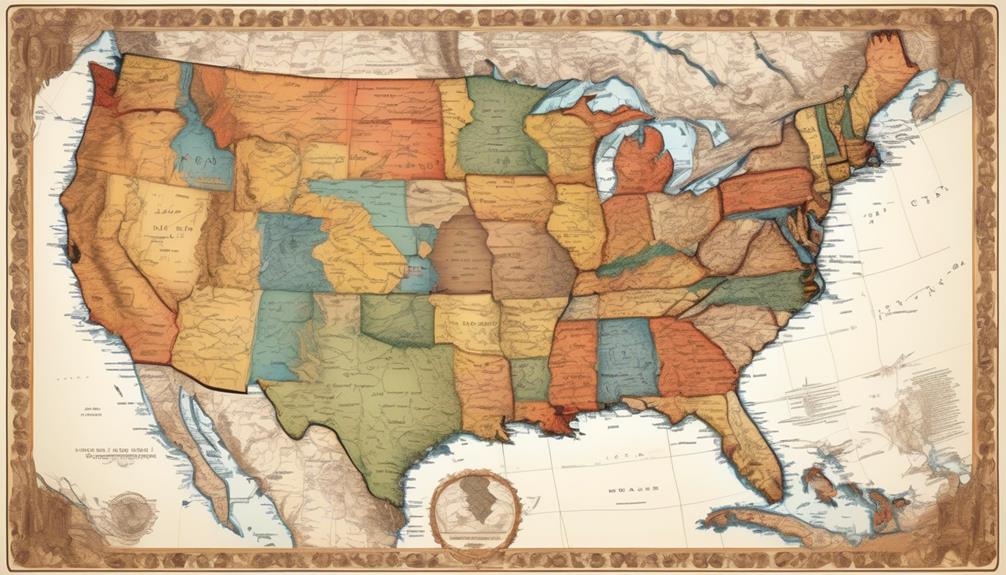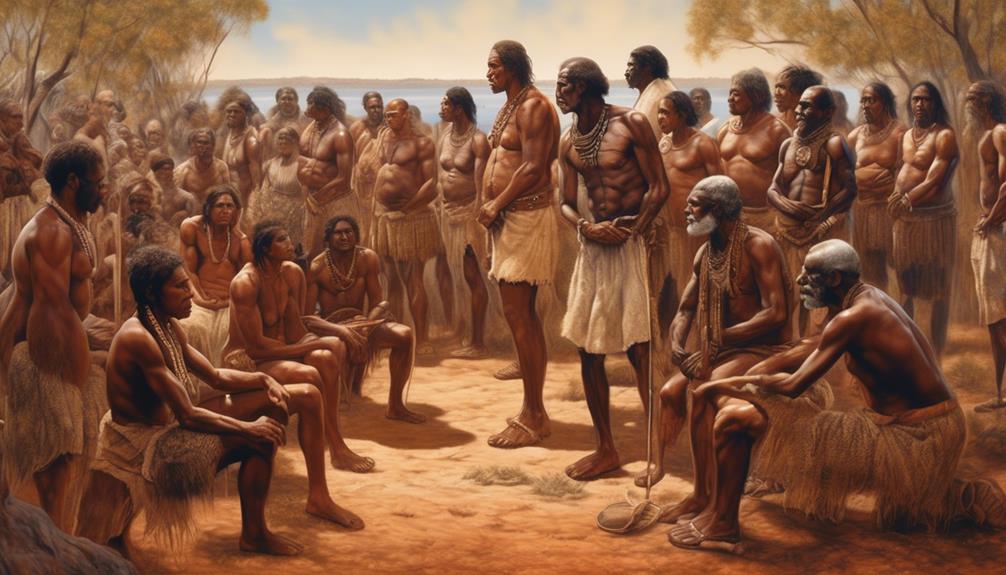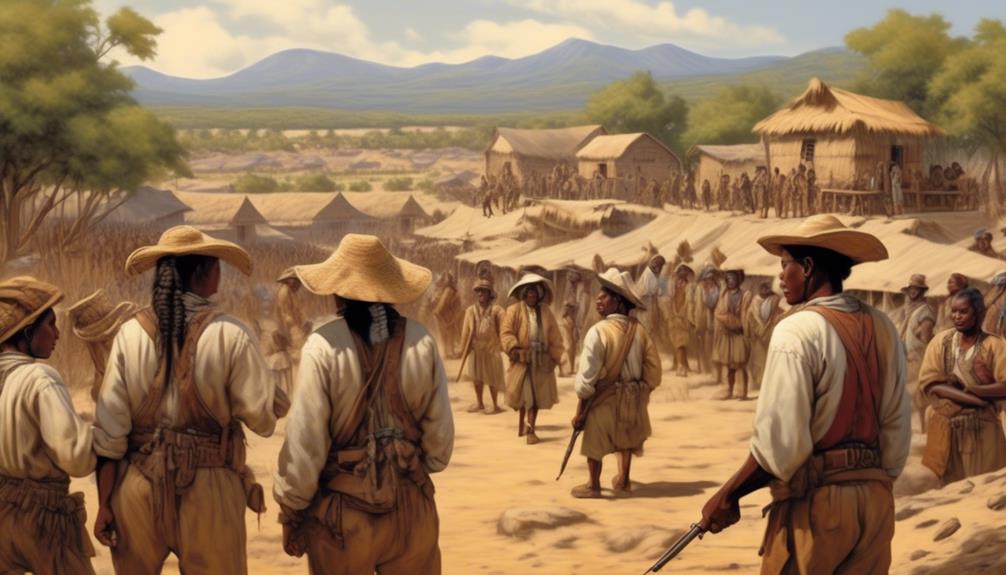Living in Los Angeles, I often wonder, ‘Which Indigenous territory is my zip code located on?’ This reflection may not have occurred to many, but it is crucial in acknowledging and respecting the historical significance of the land we inhabit.
Recognizing the Indigenous territories on which our homes stand is a crucial step in honoring the original stewards of the land and their ongoing connection to it.
But how can we determine the Indigenous land by zip code? The answer to this question may surprise you and provoke a deeper understanding of the land we call home.
Key Takeaways
- Indigenous Land Acknowledgment is a meaningful act of respect that honors the land and its original inhabitants.
- Identifying Indigenous territories is crucial to recognizing the impact of colonization on Indigenous peoples and fosters a more inclusive and respectful environment.
- Online tools and resources, such as native-land.ca or the Native Land Digital map, provide detailed maps and information about traditional territories and ancestral lands.
- Recognizing Indigenous land by location deepens our connection to the history, culture, and significance of the territories we inhabit and prompts meaningful conversations about supporting Indigenous sovereignty.
Understanding Indigenous Land Acknowledgment
Understanding the Indigenous Land Acknowledgment is an essential step towards recognizing the historical and ongoing impact of colonization on Indigenous peoples and their traditional territories. It isn't merely a formality, but a meaningful and necessary act of respect. To truly comprehend its cultural significance, it's vital to delve into the historical context of land acknowledgment.
This practice stems from Indigenous traditions of honoring the land and its original inhabitants, acknowledging their enduring connection to it. By acknowledging the traditional stewards of the land, we honor their resilience, culture, and heritage. It's a gesture of solidarity and a commitment to understanding and respecting the Indigenous peoples' presence and contributions.
Embracing the historical context of land acknowledgment allows us to confront the devastating consequences of colonization and actively work towards reconciliation. It's a way to center Indigenous voices and experiences, fostering a more inclusive and equitable society. Understanding the depth of this practice empowers us to engage in meaningful allyship and support efforts towards Indigenous sovereignty and self-determination.
Importance of Identifying Indigenous Territories
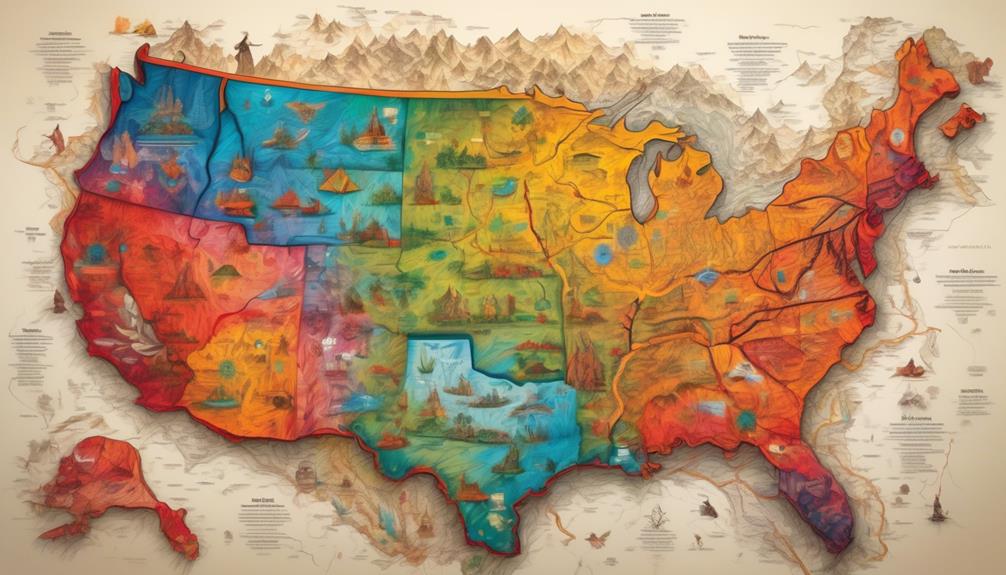
Acknowledging the traditional stewards of the land through Indigenous Land Acknowledgment is the first step towards recognizing the historical and ongoing impact of colonization on Indigenous peoples and their traditional territories, highlighting the importance of identifying Indigenous territories in our current context. Cultural awareness and territorial acknowledgment are integral to understanding the significance of Indigenous territories. By identifying and respecting these territories, we honor the deep connection Indigenous peoples have with the land, their traditions, and their ancestors. This acknowledgment fosters a more inclusive and respectful environment, promoting understanding and collaboration between Indigenous and non-Indigenous communities.
| Importance of Identifying Indigenous Territories | ||
|---|---|---|
| Cultural Awareness | Territorial Acknowledgment | Historical Context |
| Land Recognition | Respect | Collaboration |
Understanding the historical context of colonization allows us to appreciate the enduring significance of Indigenous territories. It encourages us to reflect on the injustices that Indigenous communities have faced and continue to endure. By actively engaging in land recognition, we contribute to the ongoing process of reconciliation and support the preservation of Indigenous cultures and traditions.
How to Determine Indigenous Land by Zip Code
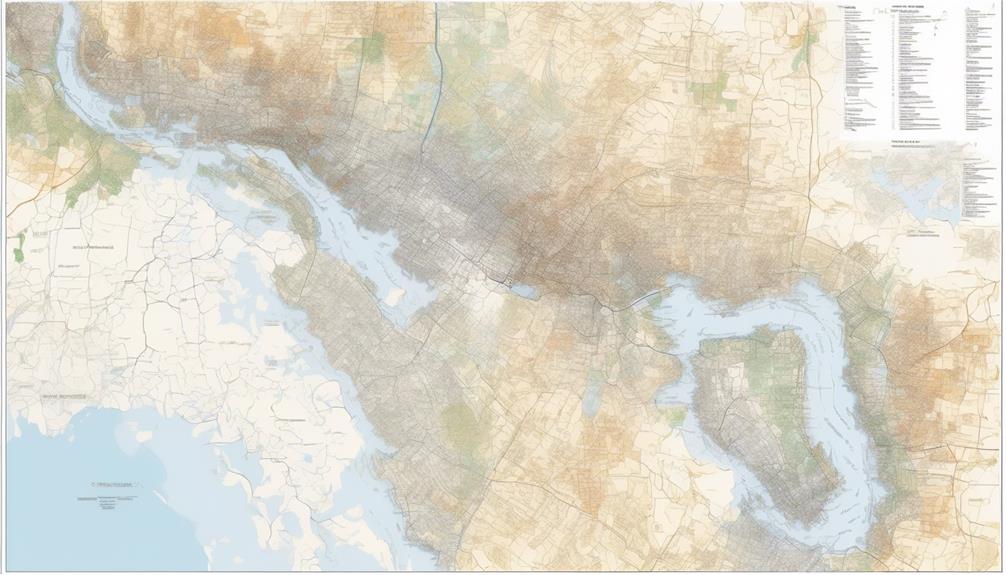
To identify Indigenous land by zip code, we can utilize online tools and resources that provide detailed maps and information about traditional territories and ancestral lands. By entering a zip code into platforms such as native-land.ca or the Native Land Digital map, one can access historical context and learn about the Indigenous peoples who've lived on, cared for, and called these lands home for generations.
These platforms offer a comprehensive understanding of the cultural preservation and historical significance of Indigenous territories. It's essential to recognize that these tools serve as a starting point for acknowledging the ongoing presence and sovereignty of Indigenous peoples, rather than as definitive boundaries.
Furthermore, understanding the historical context is crucial, as it allows us to comprehend the impact of colonization and the systematic displacement of Indigenous communities from their ancestral lands. By using these resources, we can also support and contribute to the cultural preservation efforts of Indigenous communities, fostering respect and awareness for their enduring connections to the land.
Resources for Discovering Indigenous Territory by Zip Code
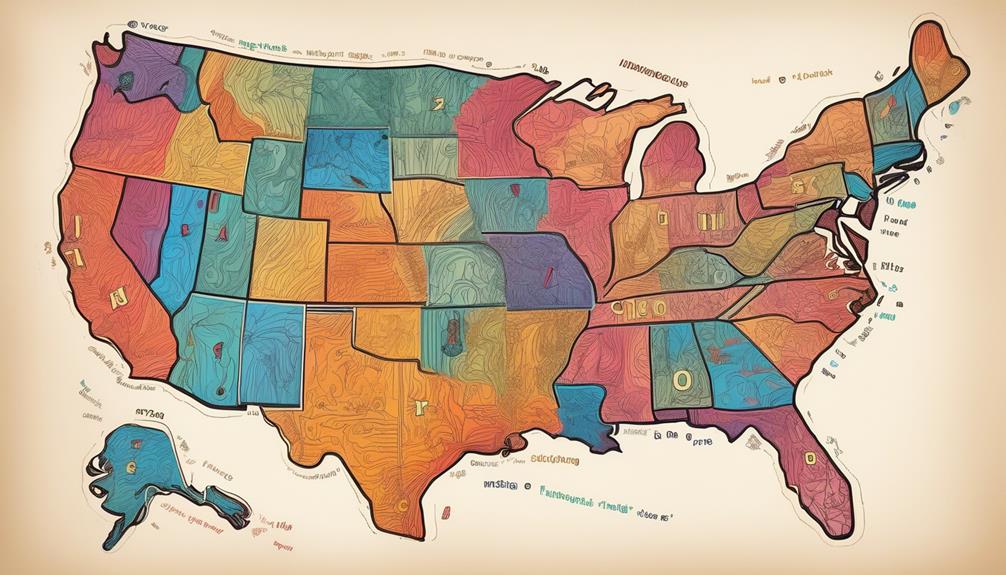
After exploring the historical context and significance of Indigenous territories using online tools and resources, we can now turn our attention to the various platforms available for discovering Indigenous territory by zip code.
Community engagement is essential in efforts to understand and acknowledge Indigenous territories. One valuable resource for discovering Indigenous territory by zip code is digital mapping. There are several digital mapping platforms that offer interactive maps allowing users to enter a zip code and learn about the Indigenous territories associated with that area. These platforms often provide additional information such as historical context, cultural significance, and details about the Indigenous communities in the region.
Engaging with these digital mapping tools not only fosters a deeper understanding of the land we occupy but also encourages individuals to support Indigenous communities and causes. Community engagement is further facilitated through the sharing of knowledge gained from these resources, sparking meaningful conversations and actions to honor and respect Indigenous territories.
Significance of Recognizing Indigenous Land by Location
Recognizing Indigenous land by location allows us to deepen our connection to the history, culture, and significance of the territories we inhabit. Acknowledging the Indigenous history of the land we occupy is a crucial step towards honoring the cultural heritage of Native communities. By recognizing the traditional owners of the land, we pay homage to their enduring connection to the territory and the rich tapestry of their traditions and customs.
Furthermore, understanding the territorial boundaries and land ownership of Indigenous peoples fosters a greater appreciation for the resilience and resourcefulness they've demonstrated in maintaining their ancestral lands.
This recognition also serves as a reminder of the ongoing struggles faced by Indigenous communities in their efforts to protect their lands and preserve their cultural heritage. It prompts us to engage in meaningful conversations about the impact of colonization and the importance of supporting Indigenous sovereignty.
Frequently Asked Questions
What Are Some Common Misconceptions About Indigenous Land Acknowledgments?
Common misunderstandings about Indigenous land acknowledgments include cultural appropriation, misrepresentation, and lack of understanding.
It's crucial to recognize that these acknowledgments aren't just symbolic gestures, but rather a way to honor and respect Indigenous peoples and their sovereignty.
It's important to educate ourselves about the specific land we're on, engage in meaningful relationships with Indigenous communities, and support their struggles for justice and self-determination.
How Can Individuals Support Indigenous Communities in Addition to Acknowledging the Land They Are On?
We can support initiatives that uplift indigenous communities by amplifying Indigenous representation in all areas of society. It's like nurturing a garden to flourish with diverse, vibrant blooms.
Engaging in cultural exchange and supporting indigenous artists, businesses, and land stewardship efforts are impactful ways to show solidarity.
Are There Any Historical Events or Treaties That Impact Indigenous Territories in My Area?
There are significant historical treaties and Indigenous events that impact our local Indigenous territory.
These events have had a profound impact on our area, shaping the current landscape and the lives of Indigenous communities.
It's crucial to acknowledge and understand these historical events and treaties to appreciate the ongoing significance and impact on the Indigenous people in our area.
What Are Some Traditional Practices or Customs of the Indigenous People Who Originally Inhabited the Land in My Zip Code?
Traditional practices and customs of the indigenous people in our area are a testament to their rich cultural heritage and connection to the land.
Engaging respectfully, we can support indigenous communities by learning about and honoring these traditions.
Through Indigenous land acknowledgments, we recognize their historical treaties and strive to create a more inclusive and equitable environment.
It's important to approach this with sensitivity and a desire to understand and celebrate their enduring legacy.
How Can I Respectfully Engage With Local Indigenous Communities to Learn More About the Land I Am On?
We engage respectfully with local indigenous communities by actively seeking to learn more about the land we're on. This involves listening to their stories, participating in cultural events, and supporting indigenous-led initiatives.
By acknowledging the significance of indigenous territories and their ongoing presence, we can foster meaningful connections and contribute to the preservation of indigenous traditions.
It's important to approach these interactions with humility, openness, and a willingness to learn.
Conclusion
So, next time you're thinking about the land you're on, don't forget to do a quick zip code search to find out whose territory you're on. It's like a fun little game of 'Whose Land Is It Anyway?'
But in all seriousness, acknowledging indigenous land is an important step in recognizing and respecting the history and culture of the original inhabitants of the land. Plus, it's just good manners.
